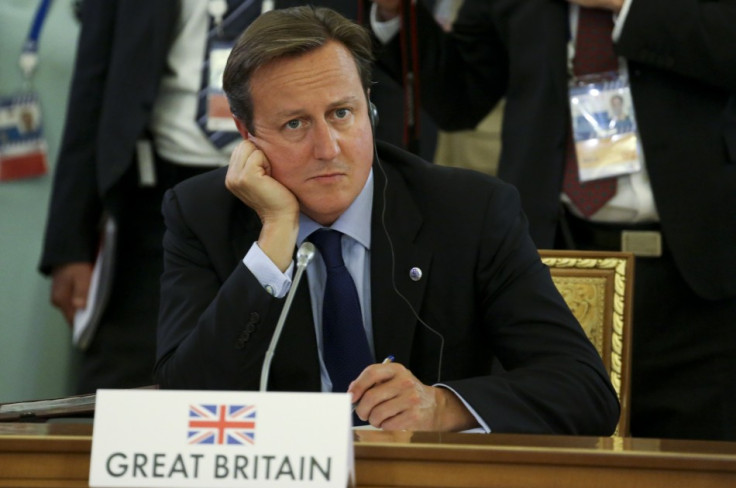G20: Cameron on the Sidelines as Obama and Hollande Talk Syria [VIDEO]
Commons vote against military action in reprisal for Ghouta gas attack undermines prime minister at St Petersburg summit

David Cameron flew into the St Petersburg G20 summit of world leaders eager to make his case for fresh diplomatic and humanitarian initiatives on Syria - but will need a giant megaphone to have his voice heard. As far as any meetings about Syria go during the G20, there is really only one show in town – military action against the Assad regime - and it is one that the British prime minister has no part in.
Cameron's frustration at having his hands tied by the Commons vote against UK involvement in any action has been palpable ever since that setback. It will come to a head over the next couple of days as he has to sit on the sidelines as other leaders, notably Presidents Obama and Hollande, meet to attempt to find some common ground over the crisis.
At the moment, there are no plans for Cameron and Obama to even meet on the fringes of the summit, although that may well change as a result of a desire on both sides not to give the impression the UK is being snubbed by the US.
But a few seconds in a corridor probably won't help dispel that impression. Cameron has made no bones of the fact that he wanted Britain to stand alongside the US in the event of military intervention and, ever since the vote in parliament, he has repeated his view that "robust action" needs to be taken in response to the use of chemical weapons.
He has now been forced to re-focus on his ongoing mission to see renewed diplomatic and humanitarian efforts to help ease the suffering of Syrians, particularly the flood of refugees into neighbouring states. And it is quite likely he will be able to salvage something on that from the meeting which will enable him to come back to the Commons next week and claim some sort of success.
But no one will be in any doubt that, as far as the British prime minister is concerned, this is one summit where his influence will be minimal.
Meanwhile, with the row over the Commons vote continuing to rumble around Westminster, deputy prime minister Nick Clegg attempted to lay the blame for the ruling out of military action at Labour leader Ed Miliband's door.
He told a radio phone-in: "We changed our [Commons] motion constantly to accept a succession of suggestions they made and then they came up with a rival motion to divide the House rather than unite it."
Labour continue to point out its motion, which was in any case defeated, did not rule out military action. It was the prime minister who interpreted the debate in the Commons to insist that MPs had ruled out such action and who has since insisted he will not press for a second vote on the issue.
© Copyright IBTimes 2025. All rights reserved.






















